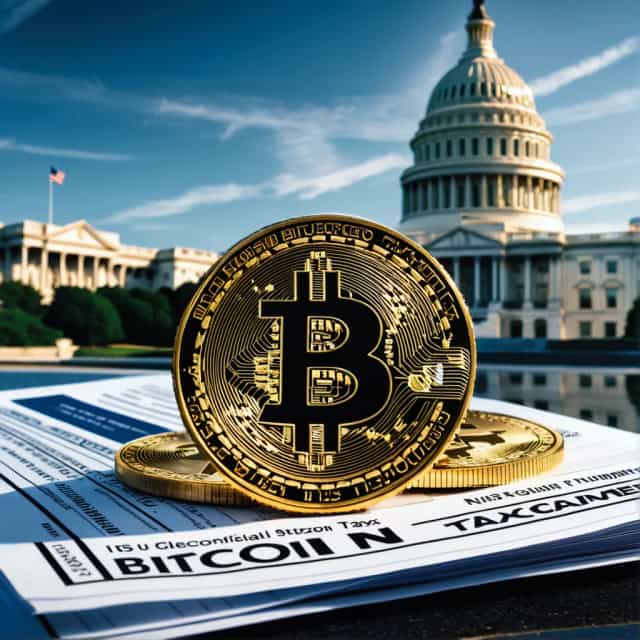
Image source: Block Media
South Korean Stocks Gain Amid Semiconductor Surge and U.S. Shutdown Concerns
South Korea's stock market kicked off October on a high note, driven by robust performance in AI and semiconductor sectors, despite lingering concerns over a potential U.S. government shutdown. However, analysts suggest the upside may be limited in the short term due to impending domestic holidays.
As of 9:25 a.m. local time, the KOSPI index climbed to 3,447.81 points, gaining 23.21 points, or 0.68%, from the prior session. The index opened higher at 3,444.06, up 19.46 points or 0.57% from its previous close of 3,424.60, and continued to advance throughout the morning.
U.S. Market Dynamics Impact South Korea
The recent trajectory of South Korean equities has been influenced by developments in the U.S. market. After hitting record highs, the KOSPI experienced a pullback following U.S. Federal Reserve Chair Jerome Powell’s cautious remarks, which tempered investor sentiment. Nonetheless, U.S. markets rebounded on September 26, buoyed by Personal Consumption Expenditures (PCE) inflation data that aligned with forecasts. Since then, U.S. trading has been mixed, reflecting an air of uncertainty stemming from the looming threat of a government shutdown.
Han Ji-young, a researcher at Kiwoom Securities, emphasized that while concerns over a potential U.S. shutdown could create short-term jitters, their market impact historically tends to be fleeting. "The ongoing optimism surrounding key sectors like AI and semiconductors remains a stabilizing factor," she explained.
Han also noted that South Korean stocks could face downward pressure from profit-taking ahead of the domestic holiday period. Additionally, currency negotiations between the U.S. and South Korea to mitigate volatility in the KRW-USD exchange rate are expected to play a role in influencing market activity this week.
Trading Activity: Foreign and Institutional Momentum
On the main KOSPI board, individual investors were net sellers, unloading 258.4 billion won worth of stocks. In contrast, foreign investors purchased 177.6 billion won, while institutional investors added 79.6 billion won to their portfolios.
Sector-wise, gains were broad-based, with the precision medical devices sector rising 1.04%, manufacturing up 1.20%, and retail climbing 0.60%. However, the securities sector declined slightly, down 0.37%.
Among heavyweight stocks, Samsung Electronics gained 1.31%, while SK Hynix surged 2.30%, fueled by optimism in the semiconductor space. Samsung Biologics rose 0.90%. On the other hand, LG Energy Solution dropped 1.15%, and Hanwha Aerospace slipped 0.18%, reflecting mixed performances among leading industry players.
KOSDAQ Outperforms, Led by Semiconductor and Biotech Stocks
The tech-centric KOSDAQ index mirrored the KOSPI’s upward trend. The index advanced by 6.36 points or 0.76%, reaching 848.35 at the same time. It opened at 846.32, marking a 4.33-point rise or 0.51% from the prior session’s close of 841.99 before pushing further into positive territory.
Foreign investors were net sellers in the KOSDAQ market, offloading shares worth 20.2 billion won. Conversely, retail investors and institutions stepped in as net buyers, purchasing 20.6 billion won and 6.9 billion won worth of stocks, respectively.
Key sectoral performers included machinery (+1.45%), metals (+1.38%), and transportation equipment & components (+0.78%). On the downside, telecommunications (-0.17%), IT (-0.16%), and entertainment (-0.12%) sectors recorded minor losses.
Among standout KOSDAQ stocks, Legochem Bioscience surged 2.49%, ABL Bio advanced 2.38%, and Alteogen gained 1.75%. However, EcoPro BM dipped 0.62%, and Rainbow Robotics declined slightly by 0.32%.
Currency Market: KRW-USD Exchange Rate Remains Volatile
In the forex market, the Korean won continued to exhibit volatility. The won-dollar exchange rate opened at 1,404.2 KRW/USD, an increase of 1.3 won from the previous session's close of 1,402.9 KRW/USD.
The exchange rate's fluctuations reflect growing uncertainty surrounding U.S. fiscal policies and heightened caution as South Korea enters its extended holiday period. Analysts anticipate that sentiment-driven currency trading will dominate activity in the near term.
Conclusion
Despite challenges such as U.S. government shutdown fears and market adjustments ahead of domestic holidays, South Korea's equity markets showed resilience, underpinned by strength in semiconductors and AI-related sectors. While profit-taking and external economic conditions may create short-term headwinds, the broader market trends suggest enduring optimism within key industries. Meanwhile, persistent volatility in the currency market and ongoing U.S.-South Korea economic negotiations will remain important factors to watch in the coming days.










